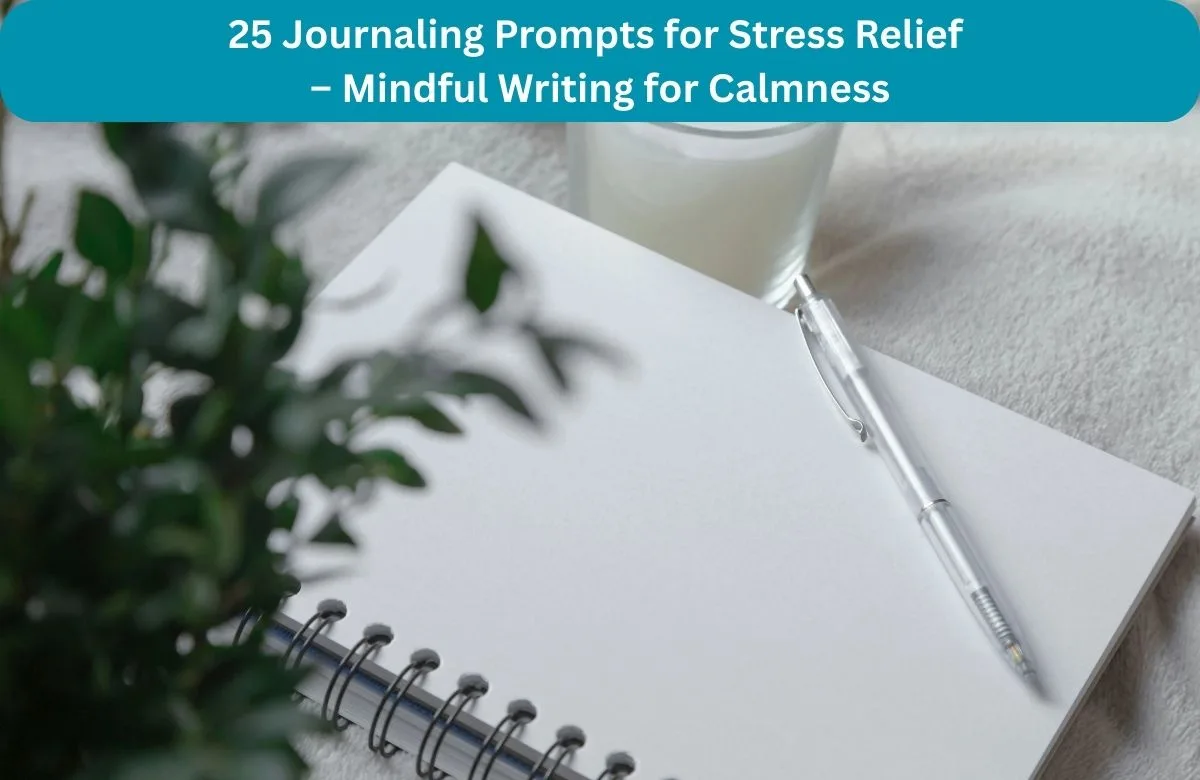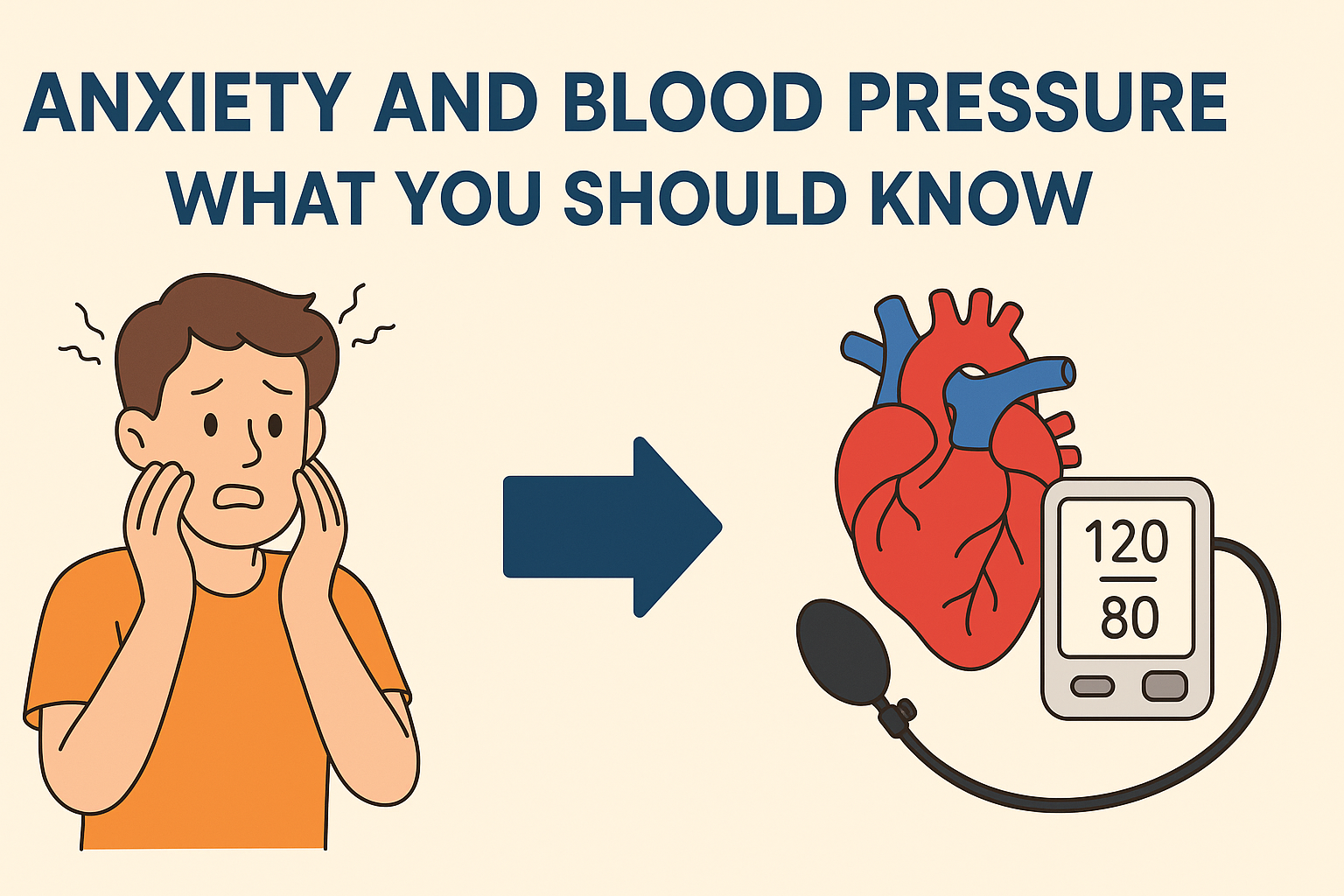25 Journaling Prompts for Stress Relief: A Mindful Approach to Inner Calm
In today’s fast-paced and digitally driven world, stress is no longer an occasional inconvenience but a frequent companion.
The constant bombardment of responsibilities, deadlines, and notifications can take a significant toll on mental well-being. Amid this chaos, journaling stands out as a timeless and therapeutic tool that offers more than just self-reflection.
It provides a private space to unravel overwhelming emotions, gain mental clarity, and realign with a sense of calm.
In this blog, we explore how journaling can be your personal sanctuary for stress relief and provide you with 25 thoughtfully crafted prompts designed to bring peace, awareness, and emotional clarity into your life.
Why Journaling Helps Reduce Stress
Journaling is more than the act of writing down daily events.
It is a psychological and emotional exercise that helps bring unconscious thoughts to the surface, giving you a chance to confront and process them.
When we externalize our thoughts onto paper, we create distance between ourselves and our internal stressors.
This shift allows us to observe our worries from a new angle, diminishing their power and influence.
Psychologists and therapists often recommend journaling as a part of expressive writing therapy. It has been shown to regulate emotions, reduce symptoms of anxiety, and build long-term resilience.
Journaling serves as a safe outlet where you can explore your feelings without judgment, making it an accessible and cost-effective strategy for stress management.
Key Benefits of Journaling for Stress Relief
| Benefit | How It Helps |
|---|---|
| Enhances Self-Awareness | Helps you understand emotions and identify triggers |
| Processes Overwhelming Thoughts | Reduces mental clutter and creates clarity |
| Releases Built-Up Emotions | Provides a healthy outlet for stress and frustration |
| Encourages Positive Thinking | Shifts focus from worries to gratitude and progress |
| Establishes a Mindful Routine | Creates a calming habit that promotes relaxation |
Incorporating journaling into your routine enables you to slow down and reconnect with yourself, giving your mind the space it needs to breathe and recover.
How to Use These Prompts Effectively
Before diving into the prompts, it’s important to create an environment conducive to self-reflection. Choose a quiet space where you feel safe and comfortable.
Eliminate distractions and allow yourself uninterrupted time—even 10 to 20 minutes can make a difference. The goal is not to write perfectly but to write honestly. Let your words flow freely without overanalyzing or editing.
Journaling is for you alone, and its value lies in its authenticity.
To gain the most benefit, try to make journaling a consistent part of your routine.
Whether you write daily or a few times a week, what matters is the regularity of practice.
Over time, you may notice increased self-awareness, improved emotional regulation, and greater resilience in the face of stress.
Emotional Awareness: Understanding What You Feel
Developing emotional awareness is essential for managing stress effectively. Journaling helps you recognize what you’re feeling and why.
Often, we react to stress without understanding its root cause.
Through writing, you can unpack these emotions and identify specific triggers. Ask yourself about the strongest emotion you felt today and what may have caused it.
Reflect on the last time you felt truly calm, and try to remember what led to that experience. Consider the physical signs that accompany your stress—tight shoulders, headaches, or a racing heart.
When you understand how stress manifests in your body and mind, you gain the power to address it more constructively.
Thought Release: Letting Go of Mental Clutter
Stress often stems from unexpressed thoughts and emotions that linger in the background of our minds. Journaling offers a release valve for these pent-up feelings.
By writing down repetitive thoughts, unspoken worries, or lingering frustrations, you reduce their emotional charge.
This section of prompts invites you to explore what’s currently weighing you down, what you’ve been avoiding, or what you wish you could say without fear of judgment.
Thought release is not about fixing problems in one sitting but about acknowledging them so they don’t consume your mental energy.
The more freely you express yourself, the lighter you may begin to feel.
Gratitude and Positivity: Shifting Your Focus
In the midst of stress, it’s easy to overlook the positive aspects of life.
Journaling can help shift your perspective by directing your attention toward gratitude and the things that are going well.
Reflecting on what you’re thankful for, recent moments of joy, or the people who bring you peace can be profoundly grounding.
These reflections not only lift your mood but also counteract the brain’s natural tendency to dwell on the negative.
When you make a habit of writing about your strengths, positive changes, and daily wins, even small ones, you foster a more resilient and optimistic mindset.
Self-Compassion: Practicing Kindness Toward Yourself
One of the most overlooked aspects of stress management is self-compassion. During difficult times, we often become our own harshest critics.
Journaling provides an opportunity to soften that inner dialogue.
This section invites you to speak to yourself with the same kindness and empathy you would offer a close friend.
Ask yourself what words of support you need to hear today.
Reflect on how you can better care for yourself and in what ways you may be expecting too much. By nurturing a more compassionate inner voice, you reduce the emotional toll of stress and reinforce your sense of self-worth.
Future Focus: Planning with Positivity
Looking forward with intention can be an antidote to feeling stuck in stress.
When you use journaling to plan small, achievable steps for the future, you shift your energy from anxiety to agency.
Think about what you can do tomorrow to make the day more manageable.
Identify what you’re looking forward to in the coming week or set a small goal that gives you a sense of progress.
Envisioning a peaceful day and directing your focus toward what matters most can help you break the cycle of stress and regain control over your time and emotions.
Open-Ended Starters for Creating Your Own Prompts
Once you become more comfortable with journaling, you may want to craft your own prompts based on what you’re feeling or needing in the moment. These open-ended starters can guide you:
| Prompt Starter | Purpose |
|---|---|
| Right now, I feel… | Helps identify and process emotions |
| Today, I need… | Encourages self-care and mindfulness |
| I wish I could… | Explores desires, regrets, or unmet emotional needs |
These flexible starters encourage authentic self-expression. Let your emotional needs guide your journaling sessions, and trust the process to bring clarity and relief.
Closing Thoughts
Journaling for stress relief is not just a self-help technique—it is a form of emotional hygiene. Just as we brush our teeth or wash our hands, we must also tend to our emotional well-being.
The act of putting thoughts on paper enables you to process experiences, regulate emotions, and make sense of your internal world.
By regularly exploring your thoughts with the help of journaling prompts, you nurture emotional resilience, deepen self-awareness, and create a more mindful way of living.
Whether you are dealing with daily anxiety, situational overwhelm, or long-term stress, journaling provides a reliable, supportive space where you can reconnect with your inner calm.
Begin where you are, write what you feel, and let the simple act of journaling become a powerful ally on your journey to emotional balance.







